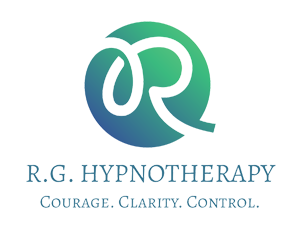Family violence recovery.
First things first…You must ALWAYS be safe so to help you with that, I have included an annoying little red button on the side of this page that says EXIT THIS PAGE. This little guy will follow you around the page as you scroll through so that you can easily navigate out of this page and back to google search if you need to.
Welcome to R.G. Hypnotherapy, a compassionate space dedicated to supporting individuals on their journey to recovery from the traumatic effects of family violence. Our skilled hypnotherapist understands the delicate nature of this healing process and are here to guide you towards reclaiming your sense of safety, self-worth, and empowerment.
Family violence leaves profound emotional and psychological scars, affecting individuals long after the physical wounds have healed. At R.G. Hypnotherapy, we acknowledge the courage it takes to seek healing and provide a safe haven for those looking to move beyond the shadows of their past.
Let's Talk About family violence
Types Of Abuse
Domestic violence is a serious issue that plagues communities around the world. It can occur in any type of relationship, including those between spouses, former partners, parents and children, and siblings. Domestic violence can be physical, emotional, sexual, or financial, and it can have a devastating impact on victims and their families. Here are the types of domestic violence:
Physical abuse: This is the most commonly recognized form of domestic violence. This type of abuse involves any physical harm inflicted on a victim, such as hitting, slapping, pushing, kicking, choking, or pushing down stairs. Physical abuse can also include the use of weapons or the threat of harm to control or intimidate a victim.
Emotional abuse: This type of abuse involves behaviors that undermine a victim’s self-esteem and sense of self-worth. Emotional abuse includes verbal insults, isolation from friends and family, constant criticism, and manipulation. This type of abuse can leave victims feeling trapped, alone, and helpless.
Sexual abuse: Sexual abuse involves any unwanted sexual contact or activity, including rape, molestation, and forcing a victim to perform sexual acts against their will. This type of abuse can leave victims feeling violated, ashamed, and traumatized.
Financial abuse: This type of abuse is less commonly recognized, but it can be just as harmful. Financial abuse involves controlling a victim’s finances or preventing them from accessing money. This can include stealing money, denying access to bank accounts, and preventing a victim from working or getting an education.
Digital abuse: With the prevalence of technology, digital abuse has become more common. This type of abuse includes using technology and social media to harass, stalk, or humiliate a victim.
Stalking: Stalking is a type of abuse that involves repeated and unwanted contact or attention. This can range from phone calls and texts to showing up unannounced at a victim’s home or workplace. This type of abuse can cause victims to feel unsafe and afraid for their lives.
Effects of abuse
The impact of domestic violence can be devastating. It affects not only the victim but also their children, family members, friends, and society as a whole. Some common consequences of domestic violence include:
Physical injuries: Domestic violence often involves physical abuse, which can result in bruises, cuts, broken bones, and even death. Victims of domestic violence may also suffer from chronic pain, headaches, and other physical health issues.
Mental health issues: Domestic violence can cause serious mental health issues, such as depression, anxiety, post-traumatic stress disorder (PTSD), and suicidal thoughts.
Substance abuse: Victims of domestic violence may turn to drugs or alcohol as a coping mechanism to deal with the pain and trauma they are experiencing.
Financial problems: Victims of domestic violence may experience financial abuse, which can result in them losing their jobs, being unable to pay bills, and ultimately becoming homeless.
Relationship problems: Domestic violence can damage relationships, causing strain and tension between partners, family members, and friends.
Children: Domestic violence has a profound impact on children who witness it. Children who witness domestic violence are more likely to experience emotional problems, such as anxiety and depression, and may even replicate the abusive behavior as they grow older.
Hypnotherapy can help you to discover the inner strength to leave and build a new life free of fear
Who is Effected
Domestic violence affects people of all genders, ages, races, and socioeconomic statuses. It is estimated that one in four women and one in seven men experience severe physical violence by an intimate partner at some point in their lifetime. Additionally, domestic violence can affect children who witness the violence, and it is estimated that 1 in 15 children are exposed to intimate partner violence each year.
Domestic violence does not discriminate and can occur in relationships regardless of sexual orientation or gender identity. However, members of the LGBTQ+ community may be at higher risk for domestic violence because they may face additional barriers to seeking help and support.
Gain Control
If you’re in a family violence situation, taking control of the situation can be a daunting task, but it’s crucial for your safety and well-being. Here are some of the steps you can take to gain control:
- Create a Safety Plan
A safety plan is a useful tool that outlines steps you can take to protect yourself and your family in the event of an outbreak of violence. It can include things like identifying safe places to go, packing essential items, and keeping important documents safe.
- Reach Out for Help
It’s essential to reach out to someone you trust, such as a friend, family member, or a professional, for help. They can help you strategize and provide emotional support.
- Consider Getting a Restraining Order
A restraining order is a legal document that prohibits an abuser from contacting you or coming near you. It can be a useful tool for keeping you and your family safe, but it’s essential to follow the proper legal process to get one.
- Seek Legal Advice
Seeking legal advice can be beneficial in helping you understand your legal rights and what options are available to you. An experienced family lawyer can help you navigate the legal process for filing a restraining order or a divorce if necessary.
- Prioritize Your Well-being
Above all else, prioritizing your well-being is key when dealing with family violence. Practice self-care by making time for yourself and engaging in activities that you enjoy. Consider seeking therapy from licensed professionals, attending support groups or taking advantage of programs that focus on self-preservation.
Letting Go of Shame and Guilt
Victims of family violence often feel a sense of shame or guilt, which can prevent them from seeking help or taking action to protect themselves. It’s important to remember that family violence is not your fault, and you have the right to feel safe and empowered. Seek professional help to overcome these feelings and start the journey towards healing.
Courage to Leave
Leaving an abusive relationship can be an incredibly difficult and emotional decision, and it takes a lot of courage to make that choice. It’s easy to feel trapped, especially when the abuse has been going on for a long time or when the abuser has convinced you that you deserve to be treated poorly. But taking the step to leave and seek help is the first step towards a better life.
One of the biggest reasons why people stay in abusive relationships is fear – fear of what their abuser might do if they try to leave or fear of being alone. But staying in an unhealthy relationship can be even more damaging to your mental and physical health. It’s important to remember that you are not alone and that there are people who want to help you.
Leaving an abusive relationship is not an easy journey, but it is a journey worth taking. It takes immense courage to make the decision to leave, but it’s the first step towards a happier, healthier life. Seek help, stay safe, and have faith in yourself. You deserve to find peace and happiness, and there is a way out.
Prioritise Your Safety
Your safety should be your top priority, and you should take the necessary steps to protect yourself from the abuser.
Here are some tips on how to be safe in an abusive relationship:
- Seek help
The first step to being safe in an abusive relationship is to seek help. You can talk to a trusted friend or family member, call a domestic violence hotline, or seek help from a counselor or therapist. There are also many local resources that can help you.
- Create a safety plan
A safety plan is a plan for how to stay safe in an abusive relationship. It includes things like having an emergency escape plan, having a safe place to go if you need to leave quickly, and having a code word or signal that you can use to let others know that you are in danger.
- Keep important documents safe
Make sure to keep important documents like your passport, driver’s license, birth certificate, and any important financial documents in a safe place. This can be with a trusted friend or family member, or in a safe deposit box.
- Keep a record of the abuse
Keep a record of the abuse, including dates, times, and specific details of what happened. This can be helpful if you decide to seek legal action against the abuser.
- Protect your online presence
Be careful about what you post online and who you connect with on social media. Abusers may use social media to track your movements and try to control you.
- Know your legal rights
Know your legal rights and what options are available to you. This may include getting a restraining order or seeking a protective order.
Remember, you are not alone. There are people and resources available to help you stay safe and get out of an abusive relationship. Take the necessary steps to protect yourself and know that you deserve to be treated with respect and dignity.
Heal From Trauma
Hypnotherapy is a powerful form of therapy that can have a profound impact on your healing journey when you have experienced trauma of family violence. Trauma can easily leave you feeling helpless and powerless, making it difficult to move forward with your life. However, hypnotherapy can be an effective tool in helping you overcome your traumatic experiences and take control of your life again.
Trauma can have a wide range of physical, emotional, and psychological symptoms that can affect your daily life. These symptoms can include anxiety, depression, anger, guilt, shame, fear, flashbacks, nightmares, physical pain, and much more. Hypnotherapy can help you address these symptoms by working with your subconscious mind to change negative thought patterns and behaviors that are keeping you stuck.
During a hypnotherapy session, you will be guided into a relaxed state of mind, known as a hypnotic trance. This state is similar to a meditative state, where your conscious mind is quiet and your subconscious mind is more accessible.
Family Violence Recovery Hypnotherapy Melbourne
Get Your Life Back
Do you feel overwhelmed by life’s experiences and unable to cope because your feelings of nervousness are debilitating?
Perhaps your quality of life is compromised because you avoid situations because you worry about things that might happen? We offer hypnotherapy in Melbourne to persons in a constant state of tension or who consider themselves trapped in their feelings of deep psychological discomfort.
This form of therapy guides the individual into a deep state of relaxation where the mind is receptive to positive suggestions.
Benefits of hypnotherapy
- Rapid healing
- Relaxing therapy that occurs while you sit back and enjoy
- Change that occurs on a subconscious level without you even having to think about it
- Qualified experienced practitioner
- Deep inner healing
- Treat the cause, not just the symptom
- Evidenced based practice
- Goal oriented, patient driven practice.
Find Freedom
Feel Happy and Confident
Move Forward in Life
Rapid Results
What Sets R.G. Hypnotherapy Apart Regarding Family Violence Recovery Melbourne
Our hypnosis therapy focuses on addressing your mental health at a subconscious level. There we challenge the source of habits that hinder your progress and replace it with more empowering thoughts. The concept behind this is neuroplasticity, where you’re able to rewire your brain to adapt to circumstances to improve your life experience.
- Highly qualified and experienced. Our therapist has an advanced diploma in hypnotherapy, psychotherapy and neuro-linguistic programming from the Australian College of Hypnotherapy. She treats the cause of mental disorders for lasting change and not merely addressing the symptom.
- Cost-effective. We cater to individuals of different budgets. After all, you shouldn’t have to sacrifice your psychological well-being because you’re unable to afford it. We offer a free initial consultation, one or one and a half hour sessions, or you have the option of four, six or ten session packages.
- Professional. We understand the challenges that come with finally deciding to take control of your mental health and the amount of effort required to reach out for help. We offer a non-judgmental environment where we treat client information with confidentiality so that individuals can open up without reservations and get to work on their peace of mind.
live your best life
Consider Hypnotherapy
Identify
Relaxation
Hypnotherapy creates a trance state, a condition of intense physical and mental relaxation. While this relaxation alone may offer some relief from trauma symptoms, it also facilitates and enhances relevant additional therapies.







